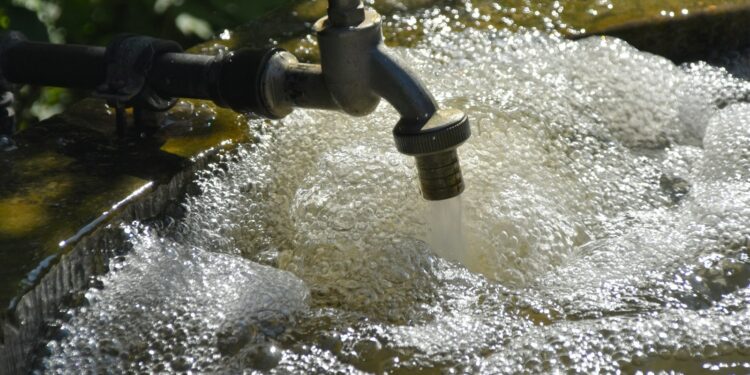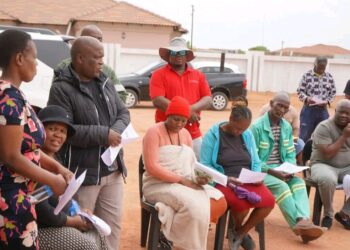Diarrheal outbreak linked to poor water quality after merger
BARBERTON – Barberton residents assert that their water issues began only after Umjindi Barberton was amalgamated with Mbombela in 2016.
Simon Dlakude (41), a resident for over a decade, noted that prior to 2016, they enjoyed clean water without any complaints.
“It was not until Umjindi merged with Mbombela that we started experiencing unhygienic, brownish water. Before the merger, our only concern was occasional water shortages due to low reservoir levels or pipe breakages in other areas,” stated Dlakude.
As a teacher at a local school, Dlakude mentioned that students were advised against drinking tap water on the premises. Instead, they were instructed to consume purified water from sachets provided by the municipality in the staff room.
Even at home, boiling water for safety became a necessity. “Last Thursday, August 8, numerous students reported stomach aches and queued up in the restroom. It was then revealed that there was an outbreak in the community. Subsequently, around 20 pupils were taken to the clinic. Fortunately, none required hospitalization; they experienced upset stomachs for a few days, recovering by Monday,” Dlakude shared.
The outbreak had varied impacts, with some colleagues leaving work early or being absent due to illness.
“We are compelled to boil water daily, which is quite a cumbersome process for obtaining drinking water. Failing to do so forces us to spend our last penny on purchasing water from stores, significantly disrupting our daily lives,” he concluded.
Councilor Philip Minnaar (37), Caucus Chairperson of the Democratic Alliance in Mbombela, echoed Dlakude’s sentiments regarding the decline in water quality and service delivery post-2016.
“Beginning around 2017/18, water problems arose, initially due to drought depleting the Lomati dam.
Subsequently, since 2020, post-drought, reservoirs consistently run dry due to inadequate water purification plant capacity to meet daily demands.
This has led to compromised water quality and sediment accumulation in the pipe network due to frequent network adjustments. Additionally, irregular chemical supplies, stemming from service provider payment delays, hinder municipal workers from delivering satisfactory service,” Minnaar explained.
Minnaar outlined key steps for Barberton’s improvement, including raising the Lomati dam outlet, constructing an additional dam for increased water storage, upgrading water purification plants to meet current and future demands, building two extra reservoirs to maintain adequate water levels, and ensuring proper financial management and service provider payments.
The Department of Health spokesperson in Mpumalanga, Dumisane Malamule, emphasized the multifaceted approach required to safeguard children, especially those under five, from diarrheal illnesses.
Measures such as Safe Water and Sanitation, Proper Hygiene Practices, Nutrition, Breastfeeding, and medical interventions like Oral Rehydration Therapy (ORT) and Zinc Supplements were recommended to the affected community.
Malamule highlighted previous diarrheal outbreaks in different municipalities and mentioned the recent surge in cases in Barberton, urging vigilance and adherence to health guidelines.
The department is actively investigating the source of the infection responsible for the surge in diarrheal cases, collaborating with various stakeholders and conducting water quality tests in affected areas.
To contain the spread, the Department of Health has implemented several strategies, including activating Outbreak Response Teams, conducting epidemiological investigations, educating the community on preventive measures, and closely monitoring the situation for timely updates and guidance.
In conclusion, the public is urged to stay informed, follow health department directives, maintain proper hygiene practices, seek medical attention promptly if experiencing symptoms, and ensure children receive necessary vaccinations to prevent severe diarrheal illnesses.























